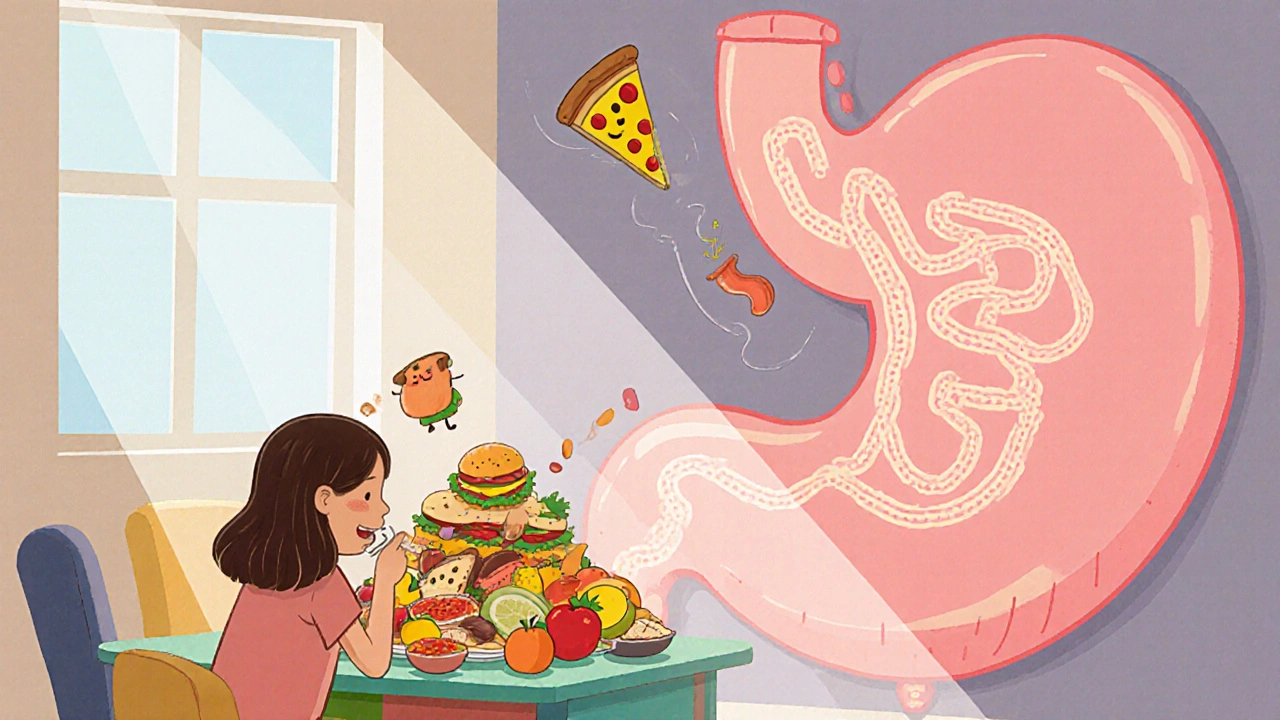Gastrointestinal Health Resources
When talking about gastrointestinal health, the overall condition of the digestive tract, including the stomach, intestines, and related organs, you’re really looking at how well your body processes food, absorbs nutrients, and eliminates waste. Also known as digestive health, it’s a cornerstone of everyday wellness because any disruption can ripple through the whole system. In this collection we’ll see how drugs, diet, and other body systems play a part in keeping your gut running smoothly.
Key Areas Covered
One major player that directly shapes gastrointestinal health is medication side effects, unintended reactions that drugs can cause in the stomach, intestines, or liver. For example, Vidagliptin, a DPP‑4 inhibitor for diabetes, often brings nausea or abdominal discomfort, which can affect nutrient intake. Understanding these side effects helps you decide whether a drug’s benefit outweighs its digestive drawbacks.
Another piece of the puzzle is kidney function, the kidneys’ ability to filter waste and regulate fluid balance. The kidneys and gut share a close partnership: poor kidney clearance can lead to toxin buildup that irritates the lining of the intestines, while certain antibiotics like Ethambutol require dose adjustments based on renal health. Keeping an eye on kidney markers ensures that the medications you take won’t inadvertently trigger gastrointestinal upset.
We also can’t ignore the gut microbiome, the community of bacteria, fungi, and viruses that live in the digestive tract. This ecosystem influences everything from immune response to drug metabolism. A common scenario is the use of antifungals like Clotrimazole while breastfeeding; they may alter the microbial balance in both mother and infant, potentially affecting digestion and nutrient absorption. Balancing probiotic intake with drug therapy can help maintain a healthy microbiome.
Lastly, urinary health, the condition of the bladder, ureters, and kidneys in managing waste fluids often overlaps with gastrointestinal concerns. Kidney stones during pregnancy, for instance, can cause flank pain that mimics intestinal cramping, and pain relievers such as Phenazopyridine target urinary tract discomfort but may also irritate the stomach lining. Recognizing these cross‑system signals lets you address the root cause rather than just the symptoms.
All these entities—medication side effects, kidney function, gut microbiome, and urinary health—interact in a web of cause and effect. By grasping how each influences your digestive system, you can make smarter choices about the drugs you take, the foods you eat, and when to seek medical advice. Below, you’ll find a curated set of articles that break down specific medications, safety tips for special populations, and practical management strategies, giving you the tools to protect and improve your gastrointestinal health.
Bulimia Nervosa’s Long‑Term Impact on Gastrointestinal Health
Explore how binge‑eating and purging damage the esophagus, stomach, and intestines over time, and learn practical steps to monitor and protect your gut health.
View more
